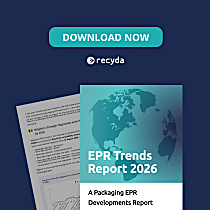Scientists develop biodegradable bamboo-based plastic for eco-friendly utensils

05 Sep 2024 --- A team of Chinese scientists has unveiled a new process to transform bamboo into a biodegradable and durable alternative to traditional plastics. The study offers a potential solution to the environmental challenges posed by conventional thermosetting plastics, which are difficult to recycle and degrade.
The new study, published on ACS Nano by the American Chemical Society, introduced a feasible approach to enhance the plasticity of bamboo by selectively removing part of its lignin and disrupting the crystalline structure of cellulose.
Bamboo, a renewable and eco-friendly resource, holds promise as a sustainable alternative to petroleum-based goods, according to the researchers. However, its natural structure also lacks “the inherent self-bonding and plasticity characteristics found in plastics.

To address this, the team developed a process to enhance the reactivity of bamboo cells, enabling them to exhibit mechanical robustness comparable to materials such as PS and PVC. This process also allows the bamboo to undergo hot-pressing, transforming it into a water-resistant, recyclable thermosetting plastic known as ABTP.
Recyclability and durability
“Bamboo is a fast-growing renewable resource that has witnessed significant advances as a scalable building material in the last two decades,” states a UN report from last year.
The bamboo-derived plastic exhibits a “high level of reusability and biodegradability,” harnessing bamboo’s sustainable development potential. “Key ways to reduce emissions from bamboo manufacturing include re-using bamboo products at their end-of-life and providing on-site renewable energy.”
According to the recent study, the plastic can be recycled by being ground into a powder, mixed with water and hot-pressed again. Additionally, the material was shown to degrade almost entirely after 90 days in soil, making it an option for reducing plastic waste in landfills.
The moldable plastic developed through this newly developed process can be used to manufacture a wide range of products, from utensils to electronic device cases. The color of the plastic can be “precisely regulated by adjusting the lignin content,” offering flexibility in design.
Tests have already demonstrated that the bamboo plastic retained its shape and strength even when exposed to solvent and water, key indicators of its suitability for long-term use.
Safety concerns with food packaging
The potential of bamboo-based plastic to replace conventional plastics in various applications is significant. However, concerns remain regarding its safety in food-related uses.
This summer, the UK’s Food Standards Agency (FSA) and Food Standards Scotland (FSS) issued warnings about the potential toxicity of bamboo-based food packaging. The advisory followed similar concerns raised in 2022 over other plant-based materials, including rice husks, wheat straw and hemp.
In an official blog shared with Packaging Insights, FSA says: “Food products made from this mix of bamboo and plastic can leak substances including formaldehyde and melamine into food or drink, especially if the product is heated up or comes into contact with acidic foods.”
While the new bamboo-based plastic represents a technological advancement with environmental benefits, FSA stresses the importance of rigorous safety testing before these materials can be used in food packaging or consumer products.
“There simply isn’t enough evidence available to assure us that these products are safe. It’s for this reason, in partnership with our own findings and analysis, that we have taken the decision to continue to advise consumers not to use them for storing or serving food,” the regulatory agency concludes.
By Sichong Wang











